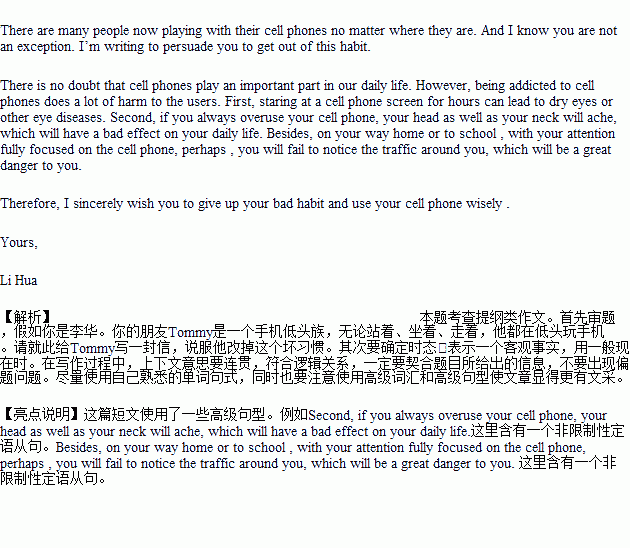题目内容
假如你是李华。你的朋友Tommy是一个手机低头族,无论站着、坐着、走着,他都在低头玩手机。请就此给Tommy写一封信,说服他改掉这个坏习惯。
注意:1.词数100左右;
2.可适当增加细节,以使行文连贯;
3.开头语和结尾语已给出,不计入总词数。
参考词汇:过度使用overuse
Dear Tommy,
There are many people now playing with their cell phones no matter where they are. And I know you are not an exception.
____________________________________________________________________________________________
____________________________________________________________________________________________
____________________________________________________________________________________________
____________________________________________________________________________________________
____________________________________________________________________________________________
____________________________________________________________________________________________
______________________________________________________________________
Yours,
Li Hua


